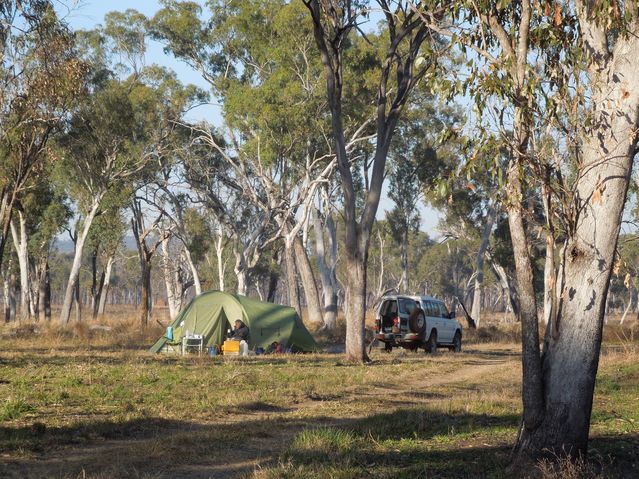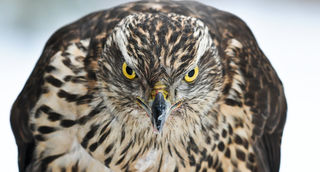
Bird watching is an interesting pass-time. A way to pass time indeed. My husband and I have just returned from an Outback camping trip in Far North Queensland, Australia, the location of many ‘romantic’ novels, as in daughter of recently demised landowner who has decided to take over the million hectare cattle and kangaroo station that has been in her family for generations and falls for rugged roving cattle man. Or perhaps she is a city gal from Sydney or even from New York or London who decides to take a working holiday in Australia as nanny or tutor to the landowner’s kids. Falls in love with landowner’s rugged son.
Here’s the truth. Outback stations are not romantic. The house may be rambling and have wide and from a distance romantic verandas, but the house is constantly full of dust and the garden is dust; often red (very photogenic), sticky and gets into and onto everything. Cannot be got out. The sun blares down and reaches forty degrees centigrade (104 degrees Fahrenheit) fairly often during the day (higher at times, and can drop to near freezing at night.) This is fine if you are actually sleeping in the dusty farmhouse but not so much in a tent pitched in the red dust under the fruiting and blissfully shade-throwing fig tree. Then there are the fruit bats who have also discovered the fig tree, and spend all night fighting screeching battles over the best fruit. Each bat has a wing span of more than one meter. There could be a hundred feasting on one fig tree under which one’s tent is pitched. They drop the masticated fruit on the tent, but worse they drop their toxic large droppings which have to be scrubbed off in the morning or they’ll eat through the tent and the paint on your 4WD.
Then there are all the things that poison one in Australia. Snakes, insects, crocodiles (although these are only likely to grab you and roll you over under water if you are camping in a National Park or cattle station near a swampy area near the coast), and even the plants can kill you! The truth is of course that the chances of any of these things poisoning you or killing you is very slim indeed unless you are very silly or very unlucky. Still, it puts many people off camping, or even going to Australia. But don’t forget the rugged, grass-chewing cattle man. Don’t talk much, “Gidday” if you’re lucky, but who knows what they might be like in the tent?
A typical Outback river bed.
So, one might ask, why would one go camping in the Outback? And what does it have to do with psychology? Back to my opening sentence. Bird watching. Birds in Australia are worth it. They are numerous, colorful and everywhere. I am not really a bird watcher except by association. I have some good binoculars and can recognize quite a few different birds and name them approximately correctly. For example the Brown Goshawk which is grey, and the Grey Goshawk which is white. So here we are, walking along, stumbling along one of the vast rivers (completely dry for decades at a time), no one in the world knowing where we are, and no other human within miles of us. Forty degrees. The husband who is the avid (read addicted) birdwatcher leaves me sitting in the shade of a Grevillea (a tree with no fruit but lots of bird-attracting flowers) while he walks further along the river bed seeking new birds to add to his already identified 400 plus Australian species. There happens to be a small pool of greenish water right near the dusty, ant-loving, mud bank I am perched upon (having checked that no snakes are visible from my perch). I sit like a stone, dead still, dead quiet, and soon the little birds, finches and honey eaters and sunbirds come to drink. I move my binoculars to my eyes very slowly as I have been taught. I think of nothing else but the present. (Better than mindfulness any day, although hotter). I put my binoculars down and rest my weary arms (binoculars get very heavy after a while). I take a sip of my hot water. I wonder if my husband will ever return and if he doesn’t how I’ll find my way back to camp.

Then, without warning, a large bird flies at my head, zooming low over the riverbed into the sun, not seeing me sitting still and quiet in the shade. I duck just as he sees me and changes his flight path and zooms over my hat, nearly taking it off. I sit up cautiously and look behind me. A beautiful Brown Goshawk is sitting on a branch two meters from me, at eye level. He looks at me and I at him. We stay like that for minutes, and I note all his features as I have been taught to do so I can identify him later with husband’s help. (At this point I know only that he or she is a raptor). Then he languidly flies down to the small water hole two meters from me on my other side and has a drink, and paddles and sits in the cool water for another few minutes. He cocks his handsome head and lets out a piercing keek-keek-keek call. All the other birds are going crazy from their hiding places in the surrounding trees. They know they are possible prey. Then having satisfactorily disturbed the peace, the goshawk zooms off, low across the river bed, and disappears. When my husband returns thirty minutes later, having seen very little of interest in the way of birds, he tells me about the commotion he heard. “Must have been a raptor around,” he says.
We sit by the water hole not speaking or moving for another ninety minutes until 5 p.m. when the birds will be having a last drink before bed (it is dark in the tropics by 6:30 p.m.). But my raptor doesn’t return. My husband says he won’t as he has had his drink for the day.
Brown Goshawks are not uncommon in Australia, but seeing a wild one so close and so unafraid is. And it is a special experience and indeed one that speaks to our deepest psychology. It is the reason we go camping, and why you might think about a wilderness experience for yourself and your family next time you are planning your holiday from your stressful everyday life. Cheaper than a therapist. And so much more fun.


